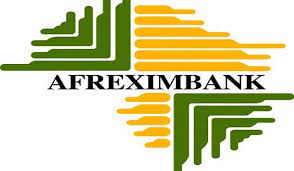The Chairman of the board of directors of the African Export-Import Bank (Afreximbank), Professor Benedict Oramah says the bank is committed to disbursing 40 billion US dollars to support intra-African trade over the next five years, building on the 20 billion US dollars disbursed in the past five years.
Oramah made this commitment at the opening session of the ongoing 2021 Intra-African Trade Fair (IATF) in Durban, South Africa.
The commitment is in the backdrop of Africa’s determination to build its institutions as well as implementing the African Continental Free Trade Agreement (ACFTA).
According to him, the bank is also providing Letters of Credit Confirmation lines to African commercial banks to support cross-border trade.
“It is our aim to onboard 500 banks with aggregate lines of over 8 billion US Dollars. The Bank has so far on-boarded nearly 480 and is today the Bank with the widest messaging links with African Banks,” Oramah said.
In addition, he said the bank is working with the African Union (AU) and the AfCFTA Secretariat to create a Pan-African Payment and Settlement System (PAPSS) to facilitate cross-border payments in national currencies.
The System, which is currently piloting in the West African Monetary Zone (WAMZ), will strengthen national currencies, integrate Africa’s payment infrastructure, and save the continent about $5 billion dollars in transfer charges.
Above all, he said it would return to Africa, large volumes of trade diverted away from the continent due to currency issues.
Oramah said Afreximbank is supporting the pilot in an amount of 500 million US dollars and expects to expand this to 3 billion US dollars when fully adopted across Africa.
According to him, the bank is piloting an African Collaborative Transit Guarantee Scheme that will facilitate an uninterrupted flow of goods across multiple borders with a single transit bond, operating on a risk-sharing platform with country-specific issuers and is committing 1 billion US dollars to the Scheme.
“We envisage that this Scheme will save the continent over 300 million US dollars in transit cost annually. And with it, goods can move from Cape to Cairo seamlessly, saving time and costs.
“We have created a Trade Information Portal that will complement the Trade Fair in availing information about market and investment opportunities across Africa. This Artificial Intelligence-enabled System will help develop predictable supply chains and enhance connectivity among African businesses,” he said.
In his welcome address, Olusegun Obasanjo, former President of the Federal Republic of Nigeria, and chairman of IATF noted that they were in South Africa two months to sign the IATF host country agreement.
It has been a very long journey characterised by a number of challenges ranging from postponement induced by Covid-19 pandemic, moving the venue from Kigali to Durban.
The IATF is the largest and booked trade and investment fair on the African continent. Trade is also one of the key initiatives in support of the implementation of the ACFTA. The ACFTA provides an opportunity for the continent to achieve economic emancipation on self-reliance.
“Despite the disruption caused by Covid-19 pandemic, the momentum created the first intra-African trade fair and launch of the ACFTA to drive intra-African trade and integration needs to be sustained,” Obasanjo said.
In his address, President Muhammadu Buhari has stressed the need for government in the continent to deploy more funds to support local entrepreneurs, increase their capacity and improve productivity.
According to him, the support would focus more in the areas of incentives that would enable businesses formalise and comply with laid down regulations.
“What we are doing firstly is to build infrastructure. Between 1999 and 2014, Nigeria was producing 2.1 million barrels a day which cost us $100 per barrel, when we came, the militants were unleashing on us and production went down to half a million barrel a day.
“With this, the costs of petroleum went down to $37 from $100. With imagine what is happening in the North East and the South South, then you can appreciate within time with the resources available how well our administration is doing.”
He expressed optimism that African trade would increase significantly by 2030 which would ultimately help reduce the continent’ s over reliance on importation if the opportunities in the intra African trade is optimised.
He also stressed the need for Africa to build an economy that is all inclusive to create jobs and enhance revenue for all sectors.
“Under African free trade area, we can double our African trade by 2030, reduce our reliance on importation and therefore promote export within the continent. We cannot achieve this goal by doing it alone, the bulk of it is on the private sector. Our business people must key into the existing business changes or create new ones,” he said.


